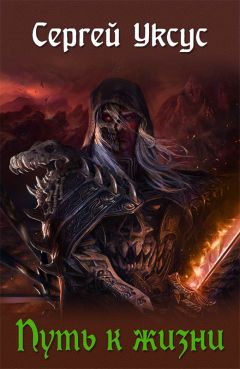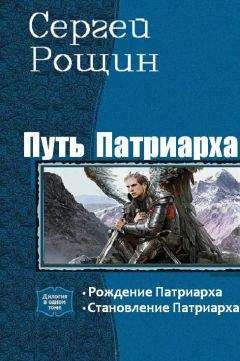Ed Lacy - Room To Swing
“Me and my TV mind. I thought we'd be out taking fingerprints and... and stuff like that.” She started the Jag, drove very slowly. We made a turn in the rough road and there was a house and a barn silhouetted against the moonlight. She turned the ignition off. “Touie, I don't want to tell you your business, but I think you should get rid of your car. Not many people have seen it, but it's sure to be a sensation in Bingston. This is my Uncle Jim's farm. Suppose I was showing you the countryside and your car broke down?”
“Fine. But how do we get back to Bingston?”
“I'll borrow one of his rattletrap cars. Your Jaguar will be safe here. And don't forget, you're Mr. Jones.”
“I won't, Miss Detective.” I took a small wrench out of the dashboard compartment, reached under and behind the dash and disconnected the ignition wires, careful not to lose any screws and nuts.
We walked up to the dark house, which proved to be a two-story, ramshackle affair. A couple of dogs came at us, barking. Frances said, “Stand still, they won't hurt you.” She began talking to the dogs, baby talk, and they wagged their long tails furiously and gave me a good sniffing over.
A light appeared in an upper window, a nickering lantern light. The window opened and a shotgun barrel appeared, followed by the large head of an elderly brown man who asked, “Who's out there?”
“It's me, Uncle Jim, Frances.”
“Oh, Lord, something wrong at home? I'll be down in a jiffy.”
He shut the window and I heard him shout, “Frances is outside!” and the house filled with sounds and flickering lights.
“Hasn't the electrical age reached here?” I asked, like it was my business.
“That's the big battle in their house. Old Jim is tight, has money's Mammy. He believes what was good enough for him is good enough for the family and the rest of that old—”
The light went on in the room before us, the door opened, and a whole gang of people started out at us. A short stocky old man wearing thick glasses, his bald dark head fringed with gray curls. He was wearing work pants over an old-fashioned suit of heavy underwear. Next to him stood a plump woman with a fat brown face, holding a worn robe about her. Behind them were a husky young fellow in a T-shirt and work dungarees and a bronze-coloured, pretty young girl in shiny blue pajamas and blue mules—the rest of them were barefooted. They stared at me in surprise as the woman asked Frances, “Child, what's wrong? Who's dead?” She had a gold tooth in the front of her mouth.
“Nothing's wrong, Aunt Rose,” Frances said as we walked in. “This is Mr. Jones, a musician on his way to Chicago. He's stopping at our house. I was showing him the countryside when his car broke down.”
“Riding at this hour of the night?” the old lady asked.
“Shoot, ain't no law against taking a ride at any hour,” Uncle Jim said, his voice deep, his handshake rough. He introduced me around. The young fellow was his son Harry and the girl in blue Harry's wife.
The old lady said she'd make coffee as Frances asked if they would keep my car in the barn until I got new parts, and could she borrow one of their old struggle-buggy s?
Uncle Jim said it was nothing. Harry put on shoes and a worn army jacket with an anti-aircraft shoulder patch, went out with me to push the Jag into the barn. Soon as he saw the car he sighed, “Hot damn!” Then yelled, “Ruth, Ma, Pa, come and look at this here job!”
I smiled in the darkness. It was like a hillbilly cartoon come to life. The entire family trooped out—in shoes—and looked the Jaguar over in the moonlight. I had to make my usual little speech about what a Jag cost new, how many miles per gallon, what speed she could do. Then Harry and I grunted and sweated as we pushed the car up the rough driveway. Frances walked alongside and steered. It was hard work, the barn up on a small hill. Finally Uncle Jim opened the door and we rolled the Jag in. There was a fairly new Dodge in the barn and in the yard behind the barn I saw five or six old cars standing around like wrecks. We were both sweating and puffing and I wiped my face, got my pipe going. Harry was still gazing at the Jag and I said, “Thanks for helping me. Where did you serve in the army?”
“I had it good, never left the States. Stayed mostly in California. Met Ruth there, and brought her back to the farm. She didn't take to it much—at first.”
He had it “good.” I wondered what he'd think of the farm, of Bingston, if he'd been lucky enough to have been sent to Europe. As he started toward the house I asked, “Did you know this Robert Thomas I was reading about?”
“I used to get along with old Porky pretty good. What's he done now?”
“The papers say he was murdered up in New York City.”
“Ole Porky got hisself killed? We haven't been to town to see a paper in days and I didn't hear nothing about it on the radio. Usually not much worth reading in the papers, but this—”
“I thought you knew. You said you used to get along with him.”
“That was when we were kids. I'd say I ain't seen Porky in around... ten years. After I beat him up once, he wasn't no trouble.”
“The papers said he was a rough character,” I said, stopping to relight my pipe, pack it down—stalling before we reached the house.
“He wasn't real bad. A white kid like old Porky, he ain't got nothing, so it make him feel good bossing coloured kids. I'd see him in the woods a lot; he was always roaming around, even stealing eggs. To eat, you see. First time I seen him stealing some of our peaches, he called me a name. I was always big for my age, so I slapped him around and he begin to bawl. I never forget him bawling. I told him I don't mind him snitching fruit but he had no call cussing me out. After that, he'd come around now and then and I'd sneak him out some hot food. He always had cigs on him. We'd sit and smoke in the fields and shoot the gas. Of course when he got older I didn't see much of him. You say he's dead? Jeez!”
“You think anybody in Bingston had it in for him?”
“Naw. Who'd remember him or—”
We were caught in a dim flood of light as the back door opened. Aunt Rose called out, “Harry, what you standing out there in the night cold for? I got food on.”
We walked into a huge kitchen with an old pump beside the sink, an old-fashioned round kitchen table, and the largest coal stove I've ever seen. Coffee was brewing, eggs frying, and Ruth was cutting a pan of hot cornbread. I had the feeling this was the first time the family had been up past midnight in years, were making it an event.
Harry said, “Mr. Jones here says he read that old Porky Thomas was killed. It's in the papers.”
Frances gave me a bored look and Uncle Jim said, “Guess people are satisfied now. They always said he'd come to a no-good end. Hit by a car?”
“He was murdered, Pa. Up in Chicago.”
“New York, the paper said,” I said.
Ruth, busy setting the table said, “If we had electricity here, we could have a TV set and everything. Know what's going on.”
“Now Jim said he'd think about it after the summer. Let's just sit and have no arguments,” the old lady added, ending the conversation.
We finished off a tremendous amount of food as they questioned me about New Orleans and Chicago, would I have to send to England for parts for the Jag, and the old man fingered my suit and wanted to ask how much it cost but didn't. All this small small-talk, the kerosene light flickering overhead, gave everything an air of unreality. Especially the way the old woman was looking me over— with frank disapproval—as if I was Frances' boy friend.
We left about an hour later, Frances driving an old Chevvy with busted upholstery and smelling of chickens. I said I'd be out in a day or two to call for the Jag and everybody shook hands as if we'd finished one hell of a big night.
Frances said, “I'll be at the house for you tomorrow, at lunchtime. I'll take you to see Tim; he can tell you all you want to know about May Russell and Porky. He's May's brother.”
“Then he's white.”
“Of course.”
“I thought we were going to see a friend of yours?”
“Tim is my friend.”
I shook my head. “The way you were talking on the way out here, I thought you avoided ofays like the plague.”
“Nonsense, there's good whites. Trouble is the bad ones are so bad.”
“I'll have to explain why I'm asking questions. Suppose I'm a reporter, doing a story on the Thomas killing? No, too soon for that. Think I'll stick to this musician kick— I'm doing the musical scoring and sort of getting the feel of things for the TV show, so I'd be—”
“Stop worrying, you don't have to tell him anything. I told you, Tim's all right.”
Her voice sounded sharp. I didn't know what “all right” meant and didn't ask. When we reached the Davis house we saw a light downstairs. Frances said in a weary voice, “Wouldn't you know, Mom is waiting up for me.”
“Well, spin around and show her there's no hay on your back.”
She drew in an angry breath, glared at me. Or maybe she was startled. I said, “I didn't mean to talk out of turn. Merely a joke, and not very funny.”
She laughed, her solemn face coming alive. “I think it's a good gag. Remember about tomorrow, sleep late. I won't be back for you until noon.”
“Fine. How far did you say Kentucky is from here?”
“Depends. On the main road, about twenty miles. Why?”
“Okay if I borrow this car?”
“Sure. What's there in Kentucky for you?”
“I'll phone a friend in New York, find out what's playing. In case the call is traced, I don't want anybody to think of Bingston,” I said, and it sounded stupid—any map would show the cops how far Kentucky was from Bingston.
We went in and Mrs. Davis was dozing in a stuffed leather chair, didn't hear us. There was a strong resemblance to the old woman on the farm—if she was sporting a gold tooth Mrs. Davis could be taken for a twin sister. I waved good night to Frances and went upstairs as I heard her shake the old lady awake, tell her, “Come on now, Mama, get your sleep. I'm home—all safe and sound. We stopped at Uncle Jim's place for a snack. Mr. Jones' car broke down.”
“I always tell you anything flashy isn't any good,” the old lady mumbled.
I undressed and stretched out on the bed, feeling wide awake. I lit my pipe and thought what an odd place Bingston was—South and yet not really South. That cop ready to break my head over a simple thing like a cup of coffee, yet when he asked about the Jag he had sounded as friendly as could be. And a chick like Frances, bitter and tough in her own way, yet sticking her neck way out to help me. Why? What was her why? That farmhouse—a little world of its own. And how did a young girl like Harry's wife take to living way out in the country, without electricity, probably no plumbing? Or Harry, how could he return to nothing after seeing California, the big cities, while in the army? If he'd seen Paris, London, Rome—would he still have returned? Sybil would raise hell at the very idea of living there. Me too, probably. Yet, in a way it was a far cleaner world than Harlem, or a big city. There wasn't any Mrs. James being dunned and cheated, or TV programs capitalizing on someone's misfortune to sell drugs. Kay and Bobby, they would seem like people from another planet— out on the farm.
In a sense Uncle Jim was smart—no papers, TV, probably the battery radio didn't work most of the time. Hardly ever saw a white face either. Maybe that was worth kerosene lamps and chicken smells. They reminded me of a Negro couple I once met, middle-aged schoolteachers. They had— maybe still have—an old apartment up in the Bronx. Every summer they both went to Paris and during the winters, the moment they entered their apartment, they spoke only French, ate French food, read Paris newspapers.... Soon as they entered their apartment they were no longer Negroes in the Bronx, but back in Paris. Without realizing it, Uncle Jim had done the same thing on his farm, had...
Then it hit me—like when you miss a hard tackle and the earth comes out and pounds everything out of you. I was lying here and thinking about the farm and Bingston as if I was a tourist, a spectator... as if Z wasn't wanted for murder!
Fear gripped me so hard I had a cramp. What was I really doing here in Bingston, playing detective to the killing in this sleepy town? In fact, was there an answer? Damn, if only I hadn't hit that cop. Suppose I'd let him take me in, told my story—after all, what motive did I have for killing the jerk? With their labs and men, the police would have found the real killer. At least there would be pros working on the case.
But would they have worked on it? Hell, they could say I was sore at Thomas for that coffeepot stuff, came back to kill him. Anything made sense—to whites—when a coloured man was involved. A jury wouldn't take my word either.... Hell, what was the point in all this if thinking? No one stands still for a pistol whipping. I had belted a white cop, and I was in this strange little Jim Crow town, with a few bucks, wasting precious time being philosophical about a lousy farm. I was doing nothing for myself. The trouble was I didn't know how I could do myself any good. I was a busher playing in the big league.
To my surprise I dozed off, had a good night's sleep. The next thing I knew the sun was hitting my face. It was nine o'clock and I felt full of pep. I washed up, considered shaving with the mailman's old-fashioned straight razor hanging beside the medicine chest, then dressed and went downstairs.
Mrs. Davis was in an old print dress, dusting, some sort of crazy lace cap on her gray head. She told me Frances and Mr. Davis had been gone for hours. “We don't sleep our lives away here.” I could have told her she didn't know how much she slept away her life but instead I stashed away one of those big country breakfasts—about a million calories in sausages, eggs, and wheat cakes swimming in syrup and butter. The old lady politely grilled me about my family, my busted nose, how long was I staying, had I ever been married. She had coffee with me, telling me the trouble she had with Frances. “That child has such queer ideas, I mean, the way she won't do a thing with her hair, or use powder.”
She wanted somebody to talk to and told me about her first child, who had died because she had waited too long to stop working, how she hoped the son at college would enter medical school after he did his army time.
When I finally pushed myself away from the table at ten, she told me, “I expect money in advance for room and board. Since I owe you a dollar, that will be three dollars for today and tonight.”




